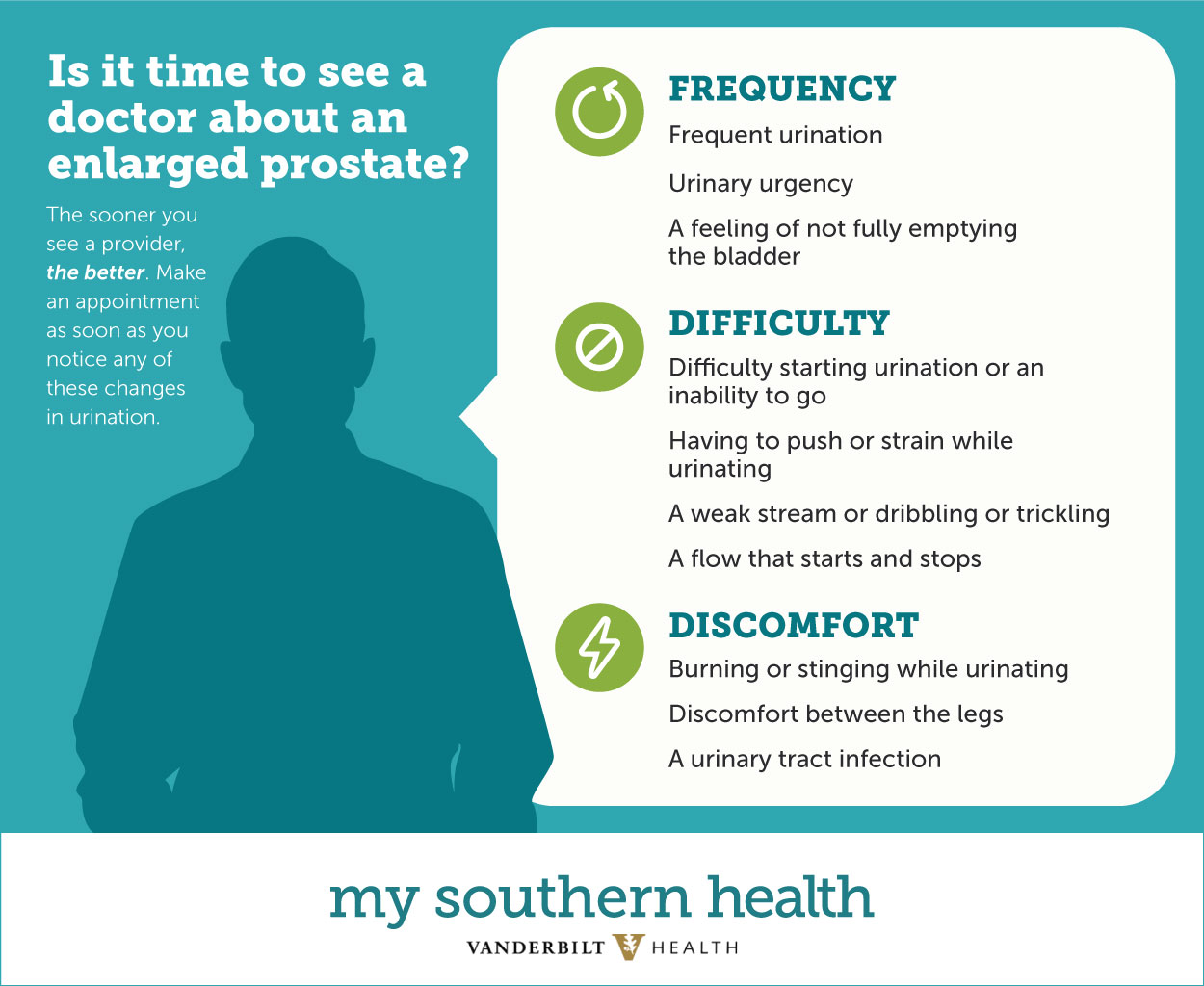These 10 changes in urination could be signs of an enlarged prostate. Know when to see your doctor.

An enlarged prostate, also called benign prostatic hyperplasia, occurs as men age. The first signs are often annoying or uncomfortable changes in urination. Even though an enlarged prostate is a common issue, men should talk to their doctor about symptoms as soon as they notice them.
“Pretty much every guy will have this issue,” said Jacob McCoy, M.D., of Vanderbilt Urology. “So people should be prepared for some symptoms.”
McCoy said urinary changes typically occur when men are 40 or older, but symptoms can arise at any adult age. “Most men start with symptoms of having to push or strain when they urinate,” he explained. “Some guys also feel like they have to return to the bathroom shortly after going because they don’t feel like they empty their bladder very well.”
A stream that trickles or dribbles or starts and stops can also be an indication of an enlarged prostate. “I think, in general, when you ask guys what bothers them, they say their stream is not what it used to be,” McCoy said. “It takes more effort for them to go.”
“Symptoms that go unchecked and get worse can put bladder and kidney health at risk. It’s always better to get them under control when they start instead of putting it off.”
Some men will get a referral to a urologist after noticing an increase in having to use the bathroom in the middle of the night. However, McCoy said nocturia is not always a symptom of an enlarged prostate and may be related to other medical conditions or lifestyle habits that a urologist can speak with you about.
The bottom line: If you’re experiencing bothersome changes in urination or pain or discomfort, McCoy recommends talking to your health care provider, and sooner rather than later. “Symptoms that go unchecked and get worse can put bladder and kidney health at risk,” he said. “So it’s always better to get the symptoms under control when they start instead of putting it off.” If you experience blood in your urine, that is a sign you should talk to your physician right away, McCoy added.
Regardless of what symptoms you’re experiencing, you shouldn’t feel embarrassed about discussing them. “Urologists are health care providers who chose to go into this field,” McCoy explained. “We’re comfortable speaking about these things, and we handle it with respect and confidentiality.”
When you schedule a visit with a urologist, you may be asked to fill out a questionnaire, McCoy explained. The urologist can then use your answers to score your symptoms. You may also undergo a physical exam, be asked to provide a urine sample, and have a bladder scan that allows the urologist to see how well you empty your bladder.
If you do have an enlarged prostate, your urologist will discuss treatment options that can help alleviate bothersome symptoms. McCoy said options range from taking medications to either help relax or shrink the prostate to undergoing surgical procedures to remove blockages. The solution that’s right for you will depend on factors such as the severity of your symptoms, the size of your prostate, and any other health conditions you may have. The important thing is to know that a urologist can help, and the sooner you reach out after symptoms arise, the better.

Talk to your doctor if you have signs and symptoms of an enlarged prostate or visit Vanderbilt Urology to review options.

